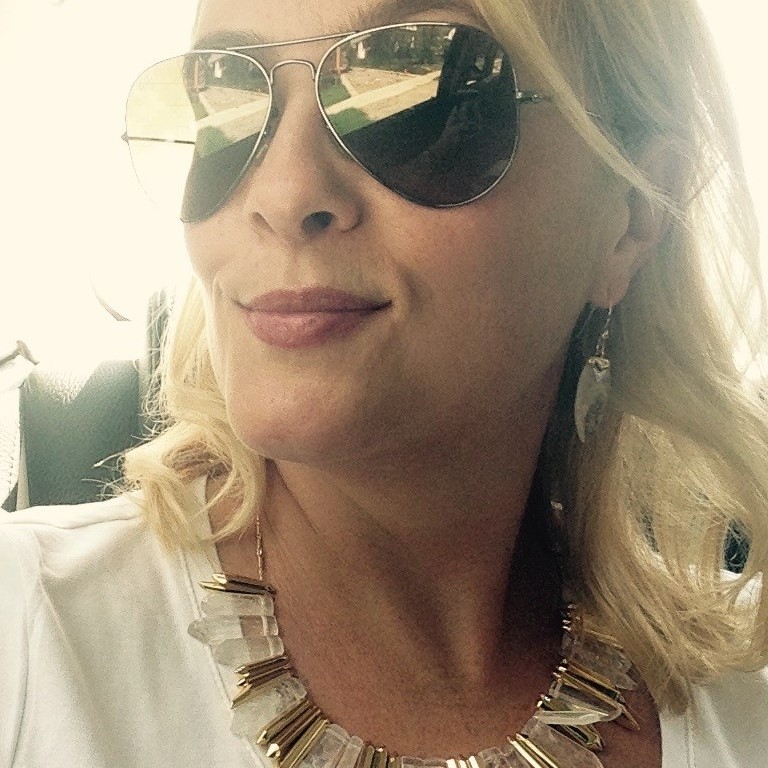6 Things to Remember About Your Friend Who’s Fighting Cancer

A dear friend is fighting cancer.
And when I say “fighting” I mean she’s in a gloves off, hair pulling, knees to the groin, knock-down, drag-out, all-out war.
She is not winning.
Since her diagnosis more than three years ago, I’ve learned a lot about what an evil menace cancer is. No amount of charity walks, coloured ribbon campaigns or television specials can convince me otherwise. Don’t get me wrong, I’m not knocking those things, I’m just at a point where I’m not sure I believe this disease should be treated with any civility whatsoever. I’m tired, frustrated and desperate for something that will change her life, cure her, TODAY.
When I heard people talk about how lonely a cancer diagnosis can be, I thought they meant sitting in a drab, sterile room receiving treatment, or waiting all day for a call from your doctor. But now I know it comes from putting on a happy face morning to night, trying to keep things normal only to have reality come crashing down when the kids are in bed and you’re alone with your thoughts.
I go to sleep worrying about the emails I didn’t return and the permission slips I forgot to sign, she goes to bed worrying about how quickly her tumors are spreading. Casseroles, notes of support and help with household chores are great, but what she really needs is a cure. She can share and vent and rage with you, but only one of you actually has the disease.
That’s what they mean about cancer being lonely.
I’ve learned a lot from watching my friend suffer, rally, rage and accept, and chief among them is that whatever I’m feeling, wanting, thinking, experiencing, she’s going through it times a hundred, a thousand. Her parents, her kids, her husband, her brother, they all cry for her on a daily basis. She’s trying to fight the disease and keep it together for everyone else, so I try to share her grief, not put mine on her. It’s hard to say whether or not this is an important distinction because every person is different, every experience with cancer is unique. And while there’s no “right” way to help a friend through it there are things you can do. Here’s what my experience has taught me:
1. She doesn’t consider herself a “warrior” and most days she doesn’t feel very “brave.” She’s a woman who’s terrified all the time and fighting for her life. Let her take the lead on how to describe herself and her experiences, don’t assume she identifies with all of the labels we put on cancer patients and survivors, especially if they’re women.
2. There’s a fine line between being optimistic and being annoying. It’s natural to want to pick our friends up when they’re down, or to try and find a silver lining in some devastating news. When a friend is suffering, our brains scramble to locate something good to cling to and promote something to remind her of when all she can see is the bad. But don’t negate what she’s telling you. If the news is shitty, agree with her that’s it’s shitty.
3. As a mom, she’s going through the same things you are. Her kids are also fighting, not listening and complaining about being bored this summer. So when she wants to vent about mom things or husband things or pet things, let her vent. Don’t let her disease be the focus of every conversation. Cancer takes enough, it can’t have our right to bitch to each other too.
4. She doesn’t want to hear about the experimental treatment your co-worker’s uncle had in Central America. The saliva of Guatemalan tree frogs may indeed have healing properties but by the time a cancer patient is several months into her diagnosis, she’s been inundated with suggestions on how to fight her disease. Everyone wants to help, and everyone has an opinion on natural remedies and non-traditional medicine, but I would gently suggest we leave the treatment plan to her doctors. Comment if asked, but don’t push and don’t make her feel like she isn’t trying hard enough if she chooses not to take a certain path. And when she says she’s done with chemo, done with trials, done with radiation, done with drugs that make her vomit, hold her hand and tell you support her, whatever decision she makes.
5. She doesn’t want to have to ask you for help. If you think she could use a home-cooked meal and a pitcher of Cosmos, a night out or a ride to treatment, just make it happen. Keep her in the loop, tell her what you’re doing and give her the opportunity to redirect or decline if the timing isn’t right. She’s making enough decisions and she doesn’t want to impose. Just do it, don’t make her ask.
6. She still wants to hear about your life. The first time my friend said “so what’s new with you?” I nearly fell over. Well, I thought, my kids are being jerks, my job sucks and I’ve got savage menstrual cramps, but does she really want to hear about that? And she did. Turns out, the worries and annoyances I thought would seem ridiculous in comparison actually helped her feel normal. As we traded stories we weren’t two friends tip-toeing around cancer, we were two friends talking about our lives. Cancer didn’t even get a mention because no matter what, we’re just two girls who love to talk about our families, our dogs, our favourite books and our love of wine.
And we always will be.













